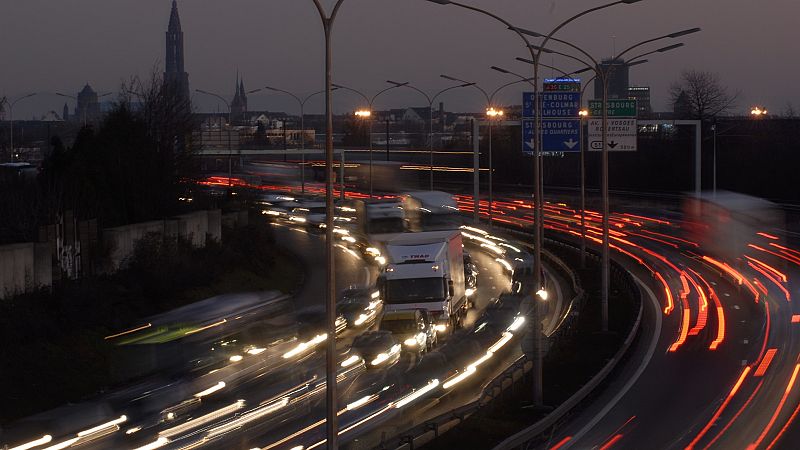Europe's noisy cities raise concerns from EU auditors

Europe’s towns and cities have cleaner air after decades of increasingly stringent pollution limits, but noise has been largely overlooked and poor monitoring means assessing progress is virtually impossible, the European Court of Auditors (ECA) said on Wednesday.
“Unlike for air quality, there are no EU-wide noise reduction targets,” said Klaus-Heiner Lehne, ECA member and former president, presenting a special report on urban pollution, adding that this "discourages member states from prioritising actions to reduce noise pollution".
Over a fifth of EU citizens are exposed to harmful long-term noise from rail, air and especially road transport, according to the European Environment Agency. Chronic exposure can lead to stress, sleep disturbance and cardiovascular issues. Half a million children also have impaired reading ability and an estimated 60,000 have behavioural difficulties attributable to transport noise.
The ECA noted “considerable gaps” in the data on noise pollution due to lax monitoring, with 15 of 27 member states having failed to provide data required under EU legislation known as the Environmental Noise Directive.
The European Commission has set out an indicative goal of reducing the number of EU citizens chronically disturbed by transport noise by 30% before the end of the decade, but its own estimates suggest the result is likely to be 19% at best.
“There is even a worst-case scenario which indicates that the level of pollution in the EU will increase by 3%,” said Katarzyna Radecka, a senior auditor who worked on the report, adding that she favoured "establishing EU wide targets and limits that would help incentivise member states to do more".
By 2029, the European Commission should assess the feasibility of imposing legal noise reduction targets and limits via the directive, in line with World Health Organisation (WHO) recommendations, the auditors said.
The ECA focused on Athens, Barcelona and the Polish city of Krakow in drafting its report, but officials stressed findings would apply broadly across Europe. Paris has already taken matters into its own hands, and is currently attempting to reduce excessive noise that affects up to 80% of residents of some neighbourhoods.
Air quality improving, but not quickly enough
Well-defined pollutant limits have been effective in improving urban air quality across Europe, the ECA said, and the Commission regularly takes legal action against governments for persistent breaches.
Lehne, who was an MEP for Germany’s centre-right CDU party in the decade to 2014, stressed the ECA’s role was not to dictate policy. “But if you ask me personally, of course, what I believe is we need a little bit more flexibility on this issue,” he said.
“You have to take the people with you,” Lehne said. “If you have a city where the average age of the car is 12 years or even more and you forbid cars that are older than 12 years in the low emission zone area, it's obvious that you will face a problem.”
The auditors note in their report that it could become increasingly difficult for some cities to meet air quality targets as EU pollution limits move closer to evidence-based levels recommended by the WHO.
Yesterday

